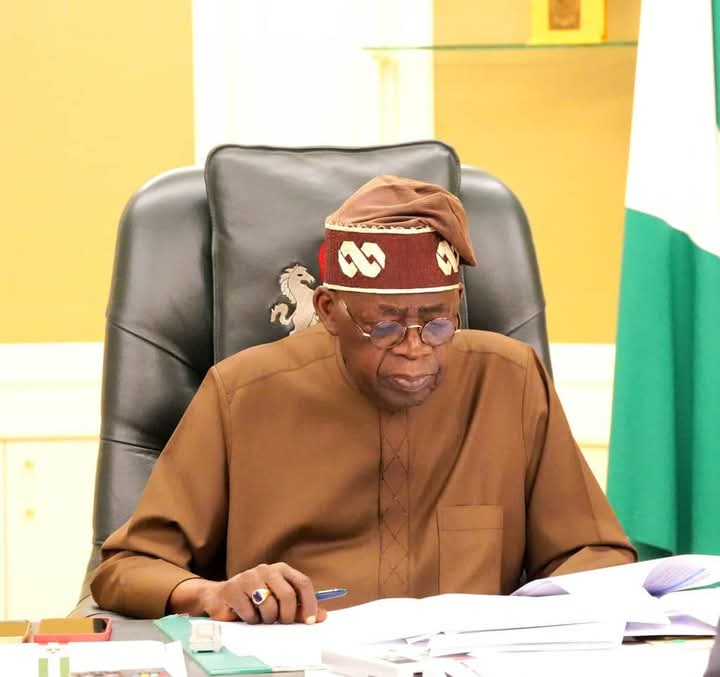Editorial
Sustaining Medical Successes In Rivers
The Rivers State University Teaching Hospital (RSUTH), in Port Harcourt, has recently reached a critical milestone in the field of neurosurgery. Through a series of successful brain surgeries, the hospital has demonstrated the exceptional competence of its medical practitioners in Nigeria.
RSUTH’s ability to perform complex procedures with precision and expertise showcases the dedication and professionalism of its doctors. This milestone instils confidence in the Nigerian healthcare system and sets a high standard for healthcare institutions across the state in particular and the country in general.
The surgeries range from pathological issues in the brain, congenital disorders of the spine in children to various other complex medical conditions. These achievements are truly commendable and set the hospital apart as one of the leading tertiary health institutions in the nation. The transformation of the RSUTH from a secondary health provider to a tertiary one has played a vital role in facilitating the advancements.
Several brain pathologies, including intracranial hemorrhage, have been treated successfully through brain surgeries, resulting in patients being discharged home. Intracranial haemorrhage refers to bleeding that occurs within the brain, and surgical interventions have proven effective in managing this condition. Additionally, brain surgeries have been performed successfully in children with various congenital diseases, such as Hydrocephalus.
In cases of Hydrocephalus, where there is an excessive accumulation of cerebrospinal fluid in the ventricular system of the brain, Ventriculo-Peritoneal Shunt surgeries have been employed. These measures have demonstrated positive outcomes, allowing children to regain normal brain function and improve their quality of life. The success of the surgeries highlights the progression in neurosurgical techniques and the impact they have on patient care in the tertiary health institution.
During the Ventriculo-Peritoneal shunt procedure, a meticulous surgical technique is employed to ensure the successful placement of a shunt system. The procedure begins with a carefully executed incision in the scalp, followed by the drilling of a small hole in the skull. Through this opening, a specialised catheter is gently inserted into one of the brain’s ventricles. This innovative process has consistently yielded results at the RSUTH, particularly in padiatric patients.
By effectively diverting excess cerebrospinal fluid away from the brain, the routine has saved countless children from the devastating consequences of conditions such as blindness, impaired mobility, and cognitive decline. The RSUTH’s commitment to excellence in this method has been instrumental in restoring hope and improving the quality of life for these young patients.
Medical doctors in the hospital have also demonstrated expertise in the repair of Myelomeningoceles, a congenital anomaly characterised by incomplete closure of the backbone and spinal canal prior to birth. Through their skilled interventions, doctors in the hospital have successfully addressed this birth defect. However, it is noteworthy that the journey does not end with the repair itself.
Following a successful technique, patients are not simply discharged, but rather transferred to the continence clinic within the hospital for comprehensive and supportive care. This approach ensures that patients receive the necessary assistance and guidance to manage any potential challenges related to continence before they are ultimately discharged.
Nigeria’s health sector is facing challenges in attracting investors and improving service delivery. However, recent achievements by the state-owned teaching hospital have the potential to change this narrative. These accomplishments may capture the attention of potential investors to the state, ultimately leading to increased foreign exchange earnings. This is a positive development that can transform the health sector in the state.
The Rivers State Government deserves commendation for its foresight in establishing the hospital and equipping it with state-of-the-art facilities. As a result, it has earned its place among the best teaching hospitals in Nigeria. The commitment and dedication demonstrated by the government in ensuring the provision of top-notch healthcare services including latest medical technologies and infrastructure, are indeed laudable.
To protract the medical successes, the state government must create an environment that fosters motivation and provides regular training opportunities for the doctors and other health professionals manning the teaching hospital. This way, the authorities can encourage them to stay within the country and refrain from seeking opportunities abroad. Motivation plays a pivotal role in retaining and enhancing their job satisfaction, productivity, and overall commitment to their profession.
Rivers indigenes who are on scholarship studying medicine at the PAMO University of Medical Sciences should be employed upon their graduation and given the opportunity to understudy medical professionals at the RSUTH. This strategic move would not only ensure continuity of the excellent performance exhibited by the current medical personnel at the hospital, but also contribute to the overall development of the healthcare sector in the state.
Employing the indigenes will enable the state to capitalise on the knowledge and skills they have acquired during their studies, while also providing them with practical experience in a real-world medical setting. This approach would foster a seamless transition from student to professional, as well as promote the utilisation of local talent to address healthcare needs within the state.
Editorial
HIV, Transiting From Donor Dependence

The initial announcement by United States President, Donald Trump, to cut funding for international
HIV/AIDS initiatives sent shockwaves through the global health community. In Nigeria, a country facing a significant HIV/AIDS burden, the potential consequences were dire. However, the subsequent waiver granted by the administration has provided a lifeline for the millions of Nigerians who rely on the President’s Emergency Plan for AIDS Relief (PEPFAR) for their treatment and support.
PEPFAR has been an important partner in Nigeria’s fight against HIV/AIDS. Since its inception in 2003, PEPFAR has committed more than $7.8 billion to the country, catering to approximately 90 per cent of HIV treatment requirements. With this funding, Nigeria has been able to enhance its HIV prevention, treatment and support services and has witnessed a reduction in HIV/AIDS deaths.
The waiver granted by the Trump administration guarantees that PEPFAR’s life-saving medicines and medical services will continue to reach the needy. Antiretrovirals (ARVs) are the most common type of medicine used to treat HIV and reduce the virus’ spread. Through the provision of ARVs, PEPFAR helps prevent the spread of HIV and enhances the quality of life of those with the condition.
Although Nigeria was recently exempted from the requirement, the signs are evident: the country has to graduate from dependence on donor funds for its HIV/AIDS control programmes. Over the years, partners including the U.S. government have been central to the provision of treatment to people living with the virus. However, it is time for Nigeria to own its national response to HIV/AIDS.
Nigeria’s HIV/AIDS burden remains critical, accounting for 10 per cent of the global total. In 2023 alone, there were 75,000 new infections and 45,000 HIV-related deaths. The battle against Mother-to-Child Transmission remains challenging, with only 35 per cent of the target 75 per cent being met. Nearly 1.7 million Nigerian children have been orphaned due to HIV. Vulnerable populations, especially women and children, continue to disproportionately suffer.
To transition away from donor dependence, a multifaceted approach is necessary. Firstly, the country must increase its domestic financing for HIV/AIDS programmes. This can be accomplished through innovative funding mechanisms, such as leveraging public-private partnerships and exploring local revenue sources. Secondly, the government needs to strengthen its healthcare system to ensure equitable access to testing, treatment, and care. This involves expanding access to antiretroviral drugs, investing in community-based models, and addressing the stigma associated with HIV.
Thirdly, Nigeria must prioritise prevention efforts. This entails promoting condom use, providing comprehensive sexual education, and increasing awareness about the risks and modes of transmission. By focusing on prevention, the country can decrease the incidence of HIV infections and ultimately lessen the burden on its healthcare system.
Finally, Nigeria should develop a sustainable human resource strategy for its HIV/AIDS response. This involves training and equipping healthcare workers, engaging community volunteers, and empowering people living with HIV to advocate for their rights. A well-trained workforce is essential for delivering high-quality services and ensuring the long-term success of the response.
The transition beyond donor dependence is a complex but necessary journey for the country. By increasing domestic financing, strengthening healthcare systems, prioritising prevention, and investing in its human resources, the country can create a sustainable and effective response to HIV/AIDS. Also, the government should consider alternative funding mechanisms, such as increased domestic funding, public-private partnerships, and philanthropic initiatives. The time to act is now, for the well-being of present and future generations.
Nigeria’s National Agency for the Control of AIDS (NACA) has made momentous strides in combating HIV/AIDS, including expanding access to testing, treatment, and education. However, challenges persist, hindering the effectiveness of these efforts.
One major obstacle is limited access to healthcare facilities, particularly in rural areas. This impedes timely diagnosis and treatment, reducing the likelihood of optimal outcomes for those living with HIV. Additionally, stigma surrounding the disease remains a formidable barrier, preventing individuals from seeking testing and care. Inadequate awareness campaigns further contribute to low testing rates and delayed diagnosis.
Addressing these challenges requires concerted action by the government and stakeholders. Allocation of adequate funding is crucial to expand healthcare infrastructure and ensure the availability of essential services. Moreover, targeted interventions to reduce stigma and promote awareness are vital for increasing testing and early detection.
Collaboration between civil society organisations and grassroots movements is also essential for advocating for protection of HIV funding. Advocacy campaigns can mobilise public support and pressure lawmakers to prioritise the fight against HIV/AIDS. By addressing these challenges and ensuring sustainable funding, Nigeria can depend less on donor countries, drastically reduce HIV transmission, and provide the necessary care to those affected by the disease.
Editorial
Israel-Gaza War: Sustaining The Ceasefire

Editorial
No To Hike In Telecom Tariffs

Nigerians are outraged by the Federal Government’s approval of a 50 per cent increase in telecommunications tariffs, with organised labour threatening to mobilise workers to boycott telecom services. The Nigeria Labour Congress (NLC) and the Trade Union Congress of Nigeria (TUC) have described the upcoming tariff as outrageous, lamenting that it will worsen the already harsh living conditions of workers and the masses.
Similarly, the Coalition of Northern Groups (CNG) rejected the hike, stating that it was ill-timed and did not take into consideration the struggles of Nigerians. The Human Rights Writers Association of Nigeria (HURIWA) also criticised the review, calling it an illegal, unconstitutional, and oppressive policy that undermines the fundamental rights and freedoms of Nigerians. It is a difficult moment for the industry.
Recall that the Nigerian Communications Commission (NCC) approved a 50 per cent increase in tariffs for telecom operators last Monday, instead of the 100 per cent raise that operators had requested. This decision quickly angered the consumers’ association, which criticised the government’s approval as not only punitive but also insensitive.
We wholeheartedly agree with the stance of labour and other groups on this very sensitive matter. We unequivocally condemn the 50 per cent increase in telecom tariffs. Though telecom operators cite higher operational costs and inflation as reasons for the hike, the timing and impact raise serious concerns in the current economic situation. It is a blatant attack on the well-being of the Nigerian worker and a betrayal of the people to corporate interests.
Telecommunication services are essential for daily communication, work, and access to information. However, the average Nigerian worker already spends approximately 10 per cent of their wages on telecom charges. For a worker earning the current minimum wage of N70,000, this means an increase from N7,000 to a staggering N10,500 per month or 15 per cent of their salary, a cost that is unsustainable.
This hike exemplifies the government’s apparent ease in prioritising corporate profits over citizens’ welfare. It is shocking that the government approved a 50 per cent tariff increase for telecom companies within a month, yet took nearly a year to approve the recent minimum wage for workers, despite the rising cost of living and inflation eroding purchasing power.
The questions are: When will the government stand up for the citizens it swore to protect? When will the National Assembly rise to its responsibility and hold the Executive accountable for policies that blatantly undermine the welfare of the majority? When will the common man finally heave a sigh of relief in Nigeria? We urge the government, the NCC, and the National Assembly to review the implementation of this ill-advised increase.
It is difficult to understand the state of mind of the managers of the nation’s economy. Sadly, these managers have alienated themselves from the reality of today. How can a government approve a 50 per cent hike in the tariff of telecom services when even the N70,000 minimum wage has been eroded by inflation, electricity tariff hikes, exorbitant fuel costs, transportation, and other social services?
Even if there is a need for an increase, why does it have to be 50 per cent? If, after dialogue, it is agreed that a raise is necessary, we should all consider a more reasonable increase rather than the 50 per cent hike. Fifty per cent is excessive and will only worsen the already harsh living conditions of workers, placing a heavier burden and more suffering on them and the general population.
The recognition of telecommunication services as essential components of modern society cannot be overstated. In an era characterised by rapid digital transformation, these services are fundamental not only for personal communication but also for facilitating broader socio-economic engagement. The proposed tariffs increase in the telecom sector raises critical concerns regarding equitable access to vital services that support communication, education, healthcare, and commerce.
In a democracy, the people should be the central focus of all government actions and policies. Every decision should aim to improve their quality of life. This plan must be carefully scrutinised with the welfare of citizens in mind. An increase in telecom tariffs will negatively impact many Nigerians, as the internet has become an essential tool for business, communication, and daily activities.
The Tide calls for the immediate suspension of the 50 per cent hike in tariffs. Instead, we recommend a more reasonable adjustment of a maximum of 10 per cent, which balances industry sustainability with the current economic realities in the country. We also demand that the NCC engages in genuine, inclusive consultations with consumer advocacy groups, civil society organisations, and other grassroots stakeholders before implementing any tariff adjustments.
-
News4 days ago
NGO Implants Free Pacemakers Into 22 Cardiac Patients In PH
-
Rivers4 days ago
100 Days: LG Boss Commissions Late Monarch’s Palace Fence, Solar Water Projects
-
Business2 days ago
FG Targets Reduction In External Borrowing
-
Business4 days ago
FG Targets Power Sector Transition To Cost-Effective Tariffs
-

 Featured2 days ago
Featured2 days agoAfrica Must Stop Depending On Foreign Blueprints -Tinubu
-
Sports2 days ago
Edo Sports commission tasks association chairmen on sponsorship
-
News4 days ago
Monarchs, MOSOP Hail Tinubu Over Ogoni Varsity Approval
-
Politics4 days ago
Anambra LP Aspirant Advocates Security Details Withdrawal From Politicians

